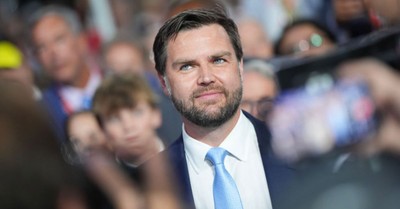Professor May Have Solved the Amelia Earhart Mystery
Reading Time: 4 minutes
Aviator Amelia Earhart and her navigator, Fred Noonan, disappeared on July 2, 1937 as they attempted to fly around the world. Their fate has remained a mystery for more than eighty years.
But an anthropology professor now says that human bones found on the remote Pacific island of Nikumaroro are likely hers. His research indicates that she was more similar to the skeletal remains than 99 percent of the individuals in a sample of 2,776 people.
Earhart was a brilliant and celebrated pilot. She was the first woman to fly across the Atlantic Ocean and the first person to fly over both the Atlantic and the Pacific. But her skills and resolve were apparently insufficient to save her from a lonely death.
Meanwhile, another nor’easter is expected to bring power outages to the northeastern US. A person with the mumps attended a national cheerleading competition in Texas last month, potentially exposing thousands of people from thirty-nine states. And a seventeen-year-old girl was killed by gunfire at an Alabama high school yesterday.
We are the most technologically-advanced society in human history. But the mortality rate for celebrities and the rest of us is still 100 percent. Nature is still more powerful than we are; a disease first documented more than twenty-five centuries ago has still not been eradicated; at least twenty-seven people have now been killed in school shootings so far this year.
Human history proves that human reason cannot solve the greatest problems humans face. But that’s not the end of the story.
What Elihu and Socrates had in common
Tucked away in a seldom-noticed chapter in the Book of Job is a profound truth claim. A young man named Elihu is exasperated that his older colleagues have not been able to persuade Job that his supposed sins are responsible for his plight. So, he offers his own approach.
In Job 32:8 he asserts: “It is the spirit in man, the breath of the Almighty, that makes him understand.” Elihu was not the first or the last to claim that humans have within us all that we need to understand ourselves and our world. Socrates taught us to “know thyself” as the path to true knowledge.
From his day to ours, Western culture stands on the notion that our reason is sufficient to solve our problems. As Bill Clinton famously claimed during his first Inaugural Address, “There is nothing wrong with America that cannot be cured by what is right with America.”
Clearly, intellectual progress has improved the lives of billions of people around the world. We could make a long list of diseases eradicated by science and advances fueled by technology.
However, human reason has not stopped war-in many ways, it has made conflict even more dangerous. It has not stopped disease-we are still threatened by pandemics we cannot prevent. It has not stopped slavery-more people are enslaved today than ever before.
Why?
“In Us We Trust”
In Mere Christianity, C. S. Lewis noted that a fleet of ships sailing in formation requires three elements for success: they must be seaworthy, with steering and engines in good order; they must not run into each other; and they must reach the proper destination. The first is the key to the others: if a ship cannot be steered properly, it cannot be kept from colliding with other ships or reaching the wrong harbor.
So, how do we make sure our “ships” are steered properly?
Political commentator Steven Soukup points to the solution espoused by those who founded our country: “When writing the Constitution, the nation’s founders were able to provide for a maximum amount of individual freedom to the American people because the young colonists shared a common belief in the Judeo-Christian moral framework.” Such religious morality is “the foundation upon which the moral and ethical life of a country is constructed.”
George Washington’s Farewell Address proves Soukup’s point: “Of all the dispositions and habits which lead to political prosperity, Religion and morality are indispensable supports. . . . Reason and experience both forbid us to expect that National morality can prevail in exclusion of religious principle.”
Despite our first president’s warning, we are busy replacing our national motto, “In God We Trust,” with our cultural credo, “In Us We Trust.” But we should not be surprised as the edifice of consensual objective morality, its religious foundation shattered, continues to crack and fall.
“God alone can do the other”
Charles Spurgeon was right: “To wash and dress a corpse is a far different thing from making it alive: man can do the one, God alone can do the other.”
If you ever doubt the relevance of your faith to our post-Christian culture, remember this: Jesus is the only answer to the problems that plague us most. We can forgive sin; he alone can transform sinners. We can prolong life; he alone can defeat death.
That’s why a transforming relationship with the risen Lord is the greatest gift we can offer others today. However, people are more likely to believe that Jesus can change their lives if he has changed ours.
Is this fact good news or bad news? That’s up to us.
Photo courtesy: Flickr.com
Publication date: March 8, 2018
For more from the Denison Forum on Truth and Culture, please visit www.denisonforum.org.
Do you want to live a life in whole-hearted pursuit of loving God and others?
Read today's First15 at www.first15.org.
















